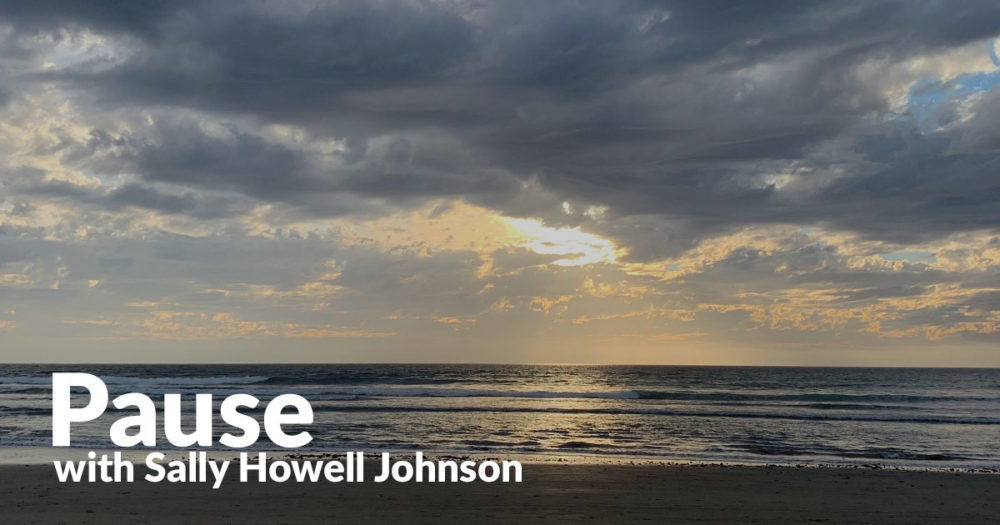"You are the future, the immense morning sky
turning red over the prairies of eternity.
You are the rooster-crow after the night of time,
the dew, the early devotions, and the Daughter,
the Guest, the Ancient Mother, and Death.
You are the shape that changes its own shape,
that climbs out of fate, towering,
that which is never shouted for, and never mourned for,
and no more explored than a savage wood.
You are the meaning deepest inside things,
that never reveals the secret of its owner.
And how you look depends on where we are:
from a boat you are shore, from the shore a boat.
~Rainer Maria Rilke
Last week I found myself, once again, involved in a conversation about the use of inclusive language for God. I have been at this 'church stuff' for a lot of years and, I have to admit, this is one of those conversations I thought would be over by now. And yet, the issues are so complex and so rooted in tradition and power that it continues to be revisited with regularity. Which is, I have to admit, a good thing. Our scriptures, written at a certain time, and our hymns, written at still other times, are laden with male images for God, a fact that has led to a fairly narrow way of imagining and addressing God. And yet none are exclusively so. The Bible is full of other beautiful images: potter, eagle, mother, even El Shaddai meaning 'mighty-breasted-mountain'.
And so the next day after this conversation, when I ran across this poem by Rainer Maria Rilke, using such compelling words to describe the Sacred, I was heartened. Future. Immense Morning Sky. Dew. Daughter. Guest. So many images and words to describe the way God moves in our lives! Why would we ever want to limit ourselves? But my favorite line of all is: 'And how you look depends on where we are:from a boat you are shore, from the shore a boat.'
Such truth. How we describe the movement of God is tempered by where we are from, what our life experiences are, how much searching we have done, and what it is we believe we have found. As we struggle with our faith and life's challenges, our words expand and contract to fit our experience. As our hearts are flooded with joy and amazing gifts, they change shape once again. If we are in the boat, the Holy may be the welcoming port of our arrival. If we are on the shore, God provides a beacon of light and protection on the stormy sea.
The danger in creating too small a dictionary of names for God is, not only idolatry, but the creation of too narrow a stage on which the Holy can play. This small arena soon leads to our own narrowness. And wouldn't it be a shame if we missed an opportunity for a new, fresh, and inspired experience of God? One of the exercises I have used for expanding my vocabulary about God is to simply say,"God is like ___________________ because_____________." After filling in the blanks, it becomes a kind of game, one in which I am on the shore sometimes, and in the boat still other times.
What are your ways of speaking about God? How do you name the Holy One's movement in your life? These summer days are ripe for creativity. I invite you to take stock of the many ways you name God. Stand on the shore. Or get in the boat. What might you discover……about yourself and about the One who made you?
t

The word “God” was associated mainly with the male father figure in my growing up years. However, my faith has become more relevant for me through inclusive language of the spiritual in all it’s creative (feminine) and “non-God” references.